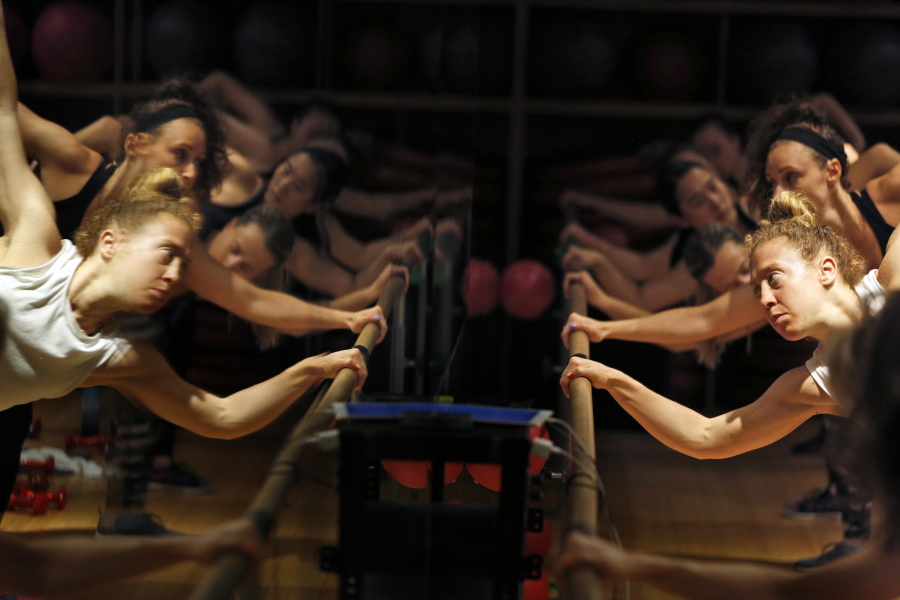FORT LAUDERDALE, Fla. — As upscale fitness boutiques are exploding in popularity, some of the nation’s largest big box gyms are opening small studios with high-end amenities, “it” trainers and specialized workouts that consumers can pay for on a class-by-class basis.
Big box gyms make their money off recurring monthly memberships with an average monthly fee of $54, but many say they saw an opening in the studio market where consumers are willing to pay between $25 and $35 for a single spinning, yoga or boot camp class.
Equinox, the leader in upscale gyms with a track record for starting trends through its innovative classes (Equinox launched SoulCycle), says its new offering, called Project, in New York, has classes in everything from high-intensity interval training to yoga for $35 each. The enterprise promotes rising fitness stars, encouraging them to create passion projects and work with other trainers to form unique mash-ups such as a dance-pilates hybrid.
Membership in traditional fitness clubs grew by 5 percent, compared with more than 70 percent in studios between 2012 and 2015. And the percentage of members who visited more than one facility in 2015 increased in all segments, ranging from 28 percent of traditional gyms to 86 percent of studio members, according to a study by the International Health, Racquet & Sportsclub Association.
“Today’s consumers, driven primarily by millennials, do not demonstrate a strong allegiance to one type of fitness program or provider. Therefore multiple memberships is becoming (or have become) the norm,” the report noted.
Experts call it the tribe mentality, led by millennials who aren’t afraid to spend more money to feel like they’re part of a shared experience and community. ClassPass, which contracts with fitness boutiques across the country and allows consumers to try different studios for a monthly fee, has capitalized on this phenomenon.
Discretionary spending on fitness has remained steady with increased spending among higher-income consumers willing to pay for $25 to $40 per class offerings.
That’s what Crunch gym, which is opening locations in Clark County, is capitalizing on with its new SweatShed boutique offering, where the motto is fitness meets entertainment.
SweatShed’s app allows consumers to pick the type of class, instructor and even where they want to stand.
Crunch, known for unique classes like gospel house aerobics and urban attitude dance, ignored the boutique bubble at first but by mid-2015, company executives noticed the market was saturated.
“That’s when we started to say, ‘Hey, let’s look at some of the things we’re doing and stay current,”‘ said Mike Spiegel, Crunch’s East Coast regional director of fitness.
Shannon Geraghty has been working out at one of Crunch’s New York gyms for two years, but also hits up two other boutique classes three times a week.
“I try to tell myself that spending money on myself and my health and well-being is better than spending $50 on a pair of shoes,” said Geraghty, a 25-year-old merchandise planner for Ralph Lauren.



